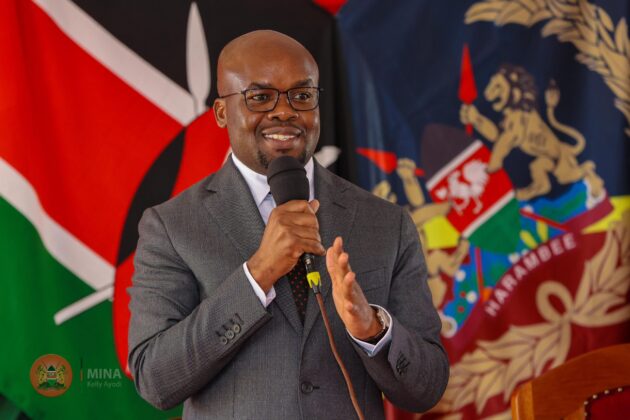
Govt rolls out 5-yr-plan to strengthen drugs, substance abuse eradication » Capital News
NAIROBI, Kenya, Jun 19 –The Government has rolled out a 5-year-plan to strengthen the ongoing efforts to tackle the elusive drugs and substance abuse in the country.
The National Authority for the Campaign Against Alcohol and Drug Abuse (NACADA) 2023–2027 Strategic Plan seeks to guide intervention efforts to rid the country of the alcohol and drug abuse menace that has predominantly affected youth.
Speaking Wednesday when he presided over the official launch of the strategic plan, Interior Principal Secretary Raymond Omollo stated that the policy document contains concrete measures that will enhance the ongoing fight against drugs and alcohol abuses
“There is no gainsaying therefore, that the Strategic Plan we are launching today, is more critical than ever, as it is the surest way of addressing the vice of alcohol and drug abuse,” PS Omollo said.
The Interior PS described the document as the “single most important” tool for enforcing laws related to alcohol consumption and distribution.
Additionally, the plan aims to unify NACADA, the National Police Service, and National Government Administrative Officers in their efforts to eradicate illicit alcohol and address related crimes.
He indicated that the strategic plan aligns with the Kenya Vision 2030, Medium-Term Plan IV, and the Bottom-Up Economic Transformation Agenda (BETA) and has been developed in line with the guidelines issued by the National Treasury and Economic Planning.
PS Omollo reiterated that the plan aims not only to combat alcohol and drug abuse but also to create a conducive environment for government programs and projects.
“It is also gratifying to note that in the Strategic Plan period 2023-2027, has identified concrete areas where efforts will be directed as an institution in collaboration with stakeholders,” he said.
Some of the key focus areas include sensitizing 10,021,630 parents to positive parenting, developing guidelines targeting learning institutions, and partnering with County governments and other stakeholders on matters of rehabilitation.
Other areas include support for victims of alcohol and substance abuse, as well as outreaches aimed at protecting citizens from illicit substances and drugs.
Highlighting the successes of the last strategic plan, PS Omollo said that in 2024 alone, the Interiro Ministry conducted 61,769 raids that saw the seizure of 342,088 litres of changáa and 2,553,108 litres of kangara confiscated.
Authorities also seized 70,743 litres of counterfeit alcohol and closed 15,538 alcohol outlets and 381 shisha joints.
Further 6,047 kilograms of bhang and a total of 29,898 arrests were made.
The PS singled out Rift Valley, Nyanza, Western, Central, and Nairobiasd the worst affected regions.
“Currently, alcohol is the most socially abused drug substance in Kenya. Drug use and abuse in the country has also been identified to be mostly affecting the youth and our learning institutions,” he said.
“Close to 40 per cent of alcohol users are youths, with 1 in every 7 Kenyans aged 25 – 35 years (1,137,288) currently using alcohol, with over half (596,336) being addicted.”
PS Omollo challenged NACADA and all stakeholders to take the implementation of the Strategic Plan very seriously.
He pointed out that NACADA must seek ways of funding the ambitious plan, disclosing that Sh 12.213 billion is needed to implement the plan against a projected resource envelope of Sh 5.997 billion in the 5-year period.
“Perhaps at this point I must point out that there are many good strategic plans out there that have been developed by professionals. They will remain just that – plans – if they are not implemented as envisaged,” he said.
The PS advised NACADA to pursue innovation, collaboration and build partnerships to secure resources for successful implementation.
Present in the event was the Chair of NACADA Board of Directors Stephen Mairori, NACADA Chief Executive Officer, Anthony Omerikwa, members of NACADA Board among others.
